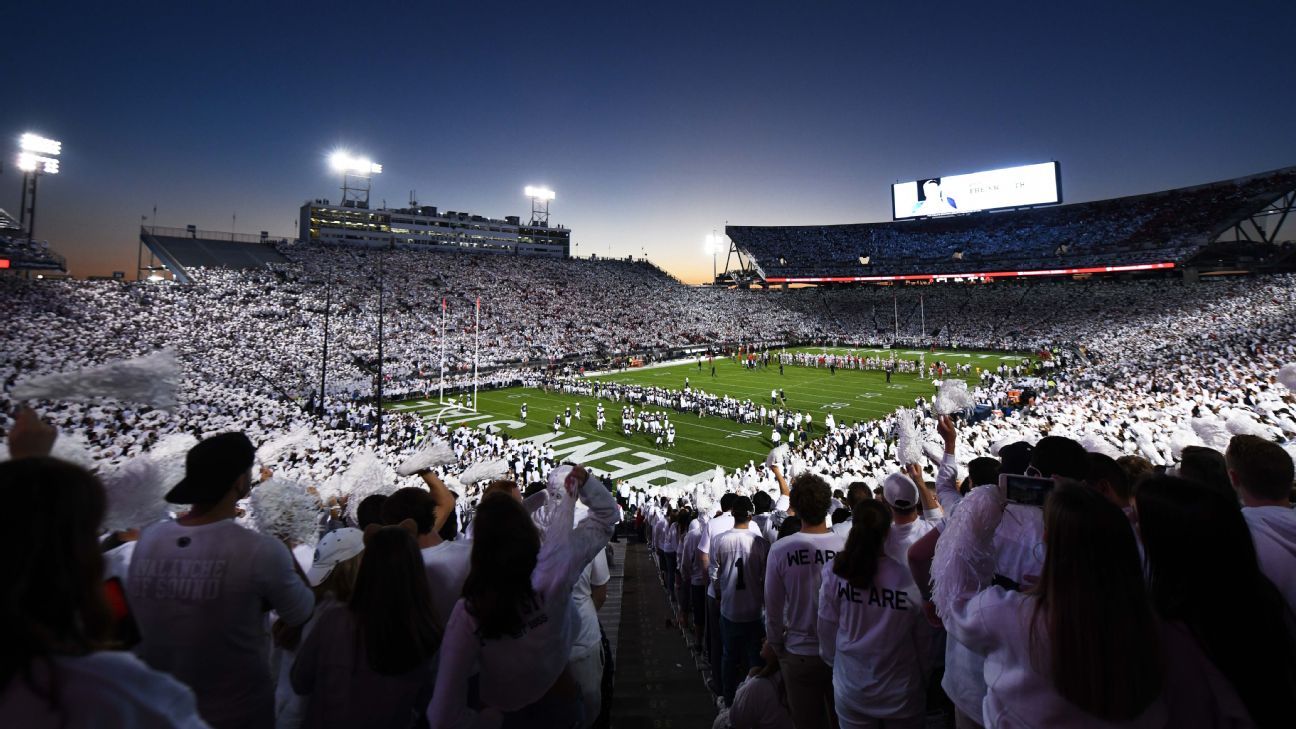Penn State athletic director Sandy Barbour said a spring college football season “would be a last resort” to safely squeeze in the sport during the coronavirus pandemic, citing the impact it would have on the 2021 fall season as a major hurdle.
Barbour said discussions about potentially playing college football in the spring began as soon as college athletics came to a screeching halt this past March because of the pandemic, which continues to cast an abundance of uncertainty over the fast-approaching 2020 fall season.
“One of the biggest challenges [of a spring season] — and it’s probably the biggest one in my mind — is the proximity to next season, and frankly a second lost spring ball,” Barbour told reporters on a Zoom teleconference Wednesday. “Overcomeable, if perhaps we’re willing to have a shortened season — again in the category of ‘something is better than nothing,’ that may not be a problem at all.”
Conferences at every level have been working on various models in case the fall is disrupted by the pandemic, but the spring contingency plan garnered more attention this week after TMG Sports reported the Ivy League is considering forgoing the entire fall in favor of a seven-game, conference-only spring season that would begin in April and conclude in mid-May.
The Ivy League will announce a final decision on fall sports July 8, but FBS decision-makers continue to move forward, albeit cautiously.
“The effects of the decisions made in July are going to reverberate for a while,” MAC commissioner Jon Steinbrecher said.
As coronavirus cases continue to rise throughout the country, Barbour conceded that pessimism among the sport’s decision-makers also does.
“There’s no doubt there’s been a little bit of pessimism here in the last couple of weeks that we really hadn’t had for probably about four to six weeks,” Barbour said. “… I think that’s part of the ebb and flow of the virus here. Obviously my hope is that, maybe, as people start looking at the masking and social distancing again and all of the precautions and recommitting to the seriousness of this, we’ll see it flatten out.
“What we’re doing is we’re planning. Obviously, given the uncertainty, we’re having to work on a lot of different plans, a lot of different scenarios. And when the time comes, if it’s healthy and safe to do it, we’ll obviously do it. And if it’s not, we won’t.”
Barbour, echoing most of her peers, said no student-athletes would lose their scholarships if they weren’t comfortable returning to their teams during the pandemic — regardless whether it’s during voluntary workouts, when mandatory training for football begins July 13 or the start of preseason camp.
“This is all about their health and safety, and an element of their health and safety is their comfort,” Barbour said. “We have at every turn indicated that it is their decision when the time for each of our teams to be invited back arrived. The decision is completely theirs, and their scholarship is not in jeopardy at all.”
